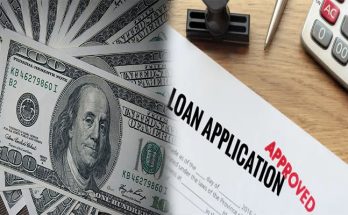Refinancing a student loan can save the individual money under the right situations. It could be pretty helpful to secure lower interest rates (IRs), to change from variable IRs to fixed ones, to consolidate the debenture to a single monthly amortization, or to release co-signers.
At the same time, individuals could lose benefits and protections from the original student debenture. Before people refinance, they need to make sure they understand their choices, including their disadvantages. Last year, SL refi interest rates (IRs) were among the lowest they have ever been, which is a good time to refinance. What is more, the government SL payment moratorium has already ended, and actions by the central bank could result in higher refi rates.
Student debenture refi in 2023
The COVID-19 pandemic has had a huge impact on the United States economy. In addition to forcing millions of individuals to file for unemployment benefits, it is also driven down IRs, giving a lot of individuals an opportunity to remortgage and save. In 2021, ten-year fixed IRs for SL refi hit record lows, according to various online marketplaces. Money is a lot cheaper, and marketplaces are pretty competitive.
That is why private lending firms may be able to offer cheaper and more favorable credit terms. Although it has changed this year, the central bank has increased its federal funds rate as much as three times this year. The rate influences short-term IRs, which can directly impact SL refi rates. If the government follows through, individuals who waited for too long could end up leaving funds on the table next year.
In short, if the credit is in excellent health, there is a good chance that getting a lower IR compared to what you are paying at the moment is a lot better than ever. A lot of borrowers have held off on refi because of the moratorium on payments, collections and interests for most federal debentures, provided by the CARES or Coronavirus Aid, Relief and Economic Security Act.
Click this site for details about CARES Act.
This pause in payments expired last May. The moratorium was set supposed to end last January, but the administration extended the pause for another three months at the end of 2020. Also, most borrowers got their hopes up that the government would provide debenture forgiveness to the tune of ten thousand dollars for the same contingent of government loan borrowers covered under the Coronavirus Aid, Relief and Economic Security Act as part of the additional COVID-19-related relief package.
But since Joe Biden’s initial signals of financial support, the government has changed its messaging to help encourage Congress to provide good solutions. In short, widespread SL forgiveness is not an option for now. Given the unpredictable nature of when and how broader SL forgiveness measures are implemented, distressed individuals shouldn’t wait to explore different options—running out of time on debenture forgiveness while unable to afford monthly amortizations on these things is a very risky game with alarming consequences.
If individuals are really struggling, experts recommend first exploring affordable payment options offered through different federal debenture programs. But if they don’t anticipate needing easy access to these schemes, refinancing may be an excellent option.
Kind of SL people can refinance
First and foremost, people should know that federal SLs can’t be refinanced through the United States government, only consolidated. People can’t swap their federal debentures for another federal loan with lower IRs or change their private SLs into a federal one.
As a matter of fact, consolidating these debentures through the United States Department of Education will result in a higher IR. In contrast, private debenture refinancing allows individuals to refi a federal or private student debenture – or both together – into new private credits.
But remortgaging may not make a lot of sense for federal SL borrowers. In doing so, people will lose tons of eligibility for federal assistance programs, including the ability to enroll in income-driven repayment plans. All programs reduce the payment to a fraction of the discretionary income and forgive the remaining debenture balance if people have not fully paid their credits at the end of the term.
Likewise, public service workers like teachers who are working towards credit forgiveness under one of the plans offered by government agencies would no longer qualify for these benefits if they were remortgaging. Finally, while most private lending firms offer the ability to temporarily minimize or stop repayments and avoid default through forbearance and deferment, terms may not be as good compared to federal SLs.

When refinancing a student credit makes a lot of sense
Is refinancing an SL the right choice at the moment? Seriously consider this process if:
The person’s score is good enough to qualify them for lower IRs than their current loans
They may qualify for this process with a score of around 650. But a higher credit score can get those better rates, as well as more cash flows. If remortgaging an existing debenture allows the individual to have more access to funds for their current needs, pay down expensive debts, or for their future retirement, it is worth considering.
The private credit has a variable IR, and borrowers want to refi to a fixed-rate ones
With VRL, people could see their IR go up at some point because of changes in market rates. If that happens, a new fix-rate debenture might be a lot cheaper. The same goes if borrowers have private credits with higher IRs. People who have older private debentures with high-interest rates and balances may find an opportunity to save money with a rate drop.
They want to minimize the number of monthly amortization they make. If they have more than one PSL, they might want to refi them into a single credit so they can make one monthly amortization. If people want to reduce their federal credit payments but do not plan to change to a private one, the process is called debenture consolidation and not refinancing. Their new direct consolidation credit would have a weighted average IR or interest rates that are the weighted average of their current credits rounded up to the nearest 1/8th of one percent.
Check out sites like refinansiering kalkulator bulkquotesnow.com to know more about this subject.
The borrower wants to release their co-signer
If the borrower can refi a PSL in their name alone, they could free co-signers from any liabilities for their debts. But some financial institutions like conventional banks, credit unions, or online lending firm offer co-signer release only after consecutive on-time payments, like two to five years. They will also need to meet specific criteria after they have made the needed number of consecutive payments.
They are willing to give up their government benefits
Suppose the person’s financial situation is in excellent shape, and the benefits of remortgaging outweigh the costs of ditching their government credits. In that case, it might be the best available path for them to move forward.
How much will refinancing this kind of credit will save?
If the borrower can secure lower IRs on a refi debenture, it could ultimately save them hundreds or thousands of dollars. For instance, let us say they have thirty thousand dollars in student debenture debt with ten-year repayment schemes and an average IR of six percent.
Their monthly amortization would be three hundred thirty-three dollars, and they would end up paying $9,967 in interest over the term of the credit. Now, let us say borrowers were to refinance their credits into new ones after they graduated college with a four percent IR and the same payment plans. Their new amortization would be three hundred four dollars, which does not sound like a significant difference. But over ten years, the reduced payments would save them more or less three thousand five hundred dollars in interest rates.





